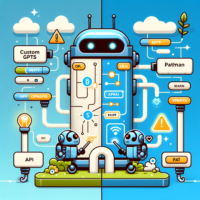
Meditation for Hackers
TLDR & Cheatsheet without the spiritual baggage. Research indicates: trying meditation could be your next game changer!
"Meditation" is just a tool. You can invest some time every day and get some results... but what, actually? And is it possible to improve the process for higher efficiency?
This post aims to get straight to the facts so you don't have to puzzle everything together by yourself. Without "motivational filler content."
Some Benefits of Meditation
To have a reference frame, let's assume that a person has never meditated before and now follows a strict regime of at least 20 minutes per day, for two months. This is what one can expect:
- 23% increased IQ. Specifically, "fluid" intelligence increases, responsible for things like creativity, pattern matching, and handling novelty.
- 120% increased productivity. This seems to be a compound effect of reduced "downtime" (illness, mood, etc.), faster "actions" (decisions, communication, problem-solving), and "emotions" (social behavior, stress recovery, bias reductions).
- 50% stress reduction. This alone has broad implications for your whole body but is too detailed for this blog post.
- 60% anxiety reduction. The effect seems to scale with anxiety levels, so there's more benefit in severe cases.
- 50% insomnia reduction. More efficient bedtime also has many benefits in itself.
And there is much more, but not as easy to quantify.
If we all were in a role-playing game, this would be a highly valued buff!
Optimal Duration/Interval
2 x 20 minutes per day. There are several sources for different types of practice, but all land in the same ballpark of 40 minutes. This is also the typical amount in clinical interventions.
Session durations of less than 15 minutes seem to have a strong diminishing return of the benefits, despite beginners "feeling good about it."
Types of Meditation
Everything above is measured from variations of Mindfulness Meditation. Basically focusing on your breath, pushing aside thoughts and emotions as they occur. Simple as that. Everything else on top looks like spiritual stuff and can be omitted. Indian-style sitting, candles, mantras—do it only if you like it, no empirical benefits.
There is also the polar opposite of mindfulness: Total Embodiment Meditation. Research is still catching up because it's a mostly unknown thing until now. It works like this: instead of hyper-focusing on one thing (mostly: breath), maximize awareness with all your senses in parallel. It noticeably works within seconds but has different effects, more like a short-term boost in high-pressure situations. In the absence of peer-reviewed numbers, my experience (n=1) confirms that this thing works, it just took a few days (thanks to former martial arts experience) of training.
Mindfulness builds up slowly over time for permanent benefits, while Total Embodiment is a strong immediate boost for a short time. Both complement each other nicely.
Augmentation
Of course, you actually need nothing to meditate. Having said that, millions of people leverage guided meditation apps to enhance the whole experience.
Being a Cyberpunk freak, software engineer, and numbers geek, I vastly prefer something different: Muse. This is a biofeedback device that measures how "deep" you are meditating and gives real-time feedback. I hear when my mind starts wandering and can stop it immediately. When done, a bunch of interesting statistics are calculated and can be compared with previous sessions.
In general, I found that using some augmentation helps greatly to prevent the biggest issue: a wandering mind, or being lost in thoughts for most of the time, which negates the whole benefits.
TLDR
The return on investment seems very clear, the tradition is known for millennia, and science confirms the benefits for decades now. Boost your cognitive abilities significantly and permanently in exchange for ~40 minutes of your day. Plus, a host of other beneficial effects I'd summarize as "wellbeing" you get on top.
If you're still looking for a new year's resolution: meditation would be a good candidate.
- Number of words: 630
- Reading time: 3 minutes
- Posted: 1 year ago
Linked Categories
Click around and find out ↓

Productivity
Boost your efficiency! Uncover actionable productivity hacks and tools that help solopreneurs and indie hackers achieve more in less time.

Biohacking
Unlock your potential with Biohacking! Dive into the world of self-optimization through science and tech to enhance your body and mind.
Related Posts →

Owning a business is exhilarating, but it’s not for the faint of heart. Many aspiring entrepreneurs fail to move forward due to fear of the unknown; however, the right tactics and mindset can help you overcome your anxieties and put you on the path to flourishing. This guide shares practical tips for growing and managing common concerns on your entrepreneurial journey.

The Solopreneur and AI assistants
1 year agoMy thoughts about how solopreneurs and indie hackers can leverage AI tools to delegate work tasks without having employees or paying freelancers.

How to hydrate your body correctly
1 year agoOptimum amounts of fluids, effects on dieting and heuristics for your everyday life.
Latest Posts →

Owning a business is exhilarating, but it’s not for the faint of heart. Many aspiring entrepreneurs fail to move forward due to fear of the unknown; however, the right tactics and mindset can help you overcome your anxieties and put you on the path to flourishing. This guide shares practical tips for growing and managing common concerns on your entrepreneurial journey.

AI Alignment Proposal: v0.1
1 year agoMy personal shot at approaching the AI alignment problem. Allows for iterative refinement as well as immediate experimentation with current LLMs today.

Custom GPTs vs OpenAPI path parameters
1 year agoSeems that the AI can't do idiomatic API calls for a RESTful interface after all - or their HTTP client has some bug.


